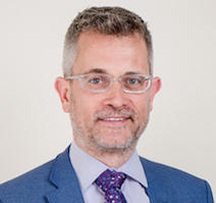Food Systems Podcast 36
In discussion with Sébastien Treyer Podcast summary
Thursday, Nov 25, 2021
A knowledge-intensive transition of Europe’s food systems
Our latest podcast delves into how Europe’s food system could be transformed towards agro-ecology on a continent-wide scale. Sébastien Treyer, Executive Director of the Institute for Sustainable Development & International Relations (IDDRI), talks about the pathways for such a transition that would meet biodiversity and climate objectives – and what agroecology at large scale would mean. For a taster, read our short summary below, or dive into the full 31-minute Food Systems Podcast for much more.
You’ve said a transition is technically feasible. But what does that mean when we’re trying to compete on world markets?
We had three findings. First, academically and technically, it is feasible to transition agriculture at the scale of the whole continent. And we are still able to export cereals and added value products, like dairy and wine.
Second, there will be structural changes – and two that are particularly important to discuss with the food and farming sector. One, the need to diversify crop production systems and, two, the need for a reduction in volume in livestock systems, which is particularly concerning for the sector. We’ve tried to explore this at scale in France with the dairy and cereals sectors to see how that could be compatible with economic strategies for farmers, cooperatives and the food processing industry downstream.
Thirdly, how ‘value not volume’ can be compatible with some specific economic strategies in both sectors, actually leading to a 10% increase in jobs in those sectors compared with business as usual.
Where are those jobs going to be found?
In farming, we would have more need for people to work on farms than with current trend of mechanization. Agro-ecology is based more on knowledge than just mechanized innovations, meaning qualified jobs. The added value is other types of jobs in the food processing industries than those that exist today.
This paradigm shift towards agroecology would need a huge investment in technology and innovation. What specific tools are you referring to?
The idea is to put more ecological thinking into agroeconomic practices and look at innovation at the scale of the whole agro-system. Innovations in the organization of the landscape and in practices. Not only looking at the improvement of one specific seed or one specific breed of animal, but at the whole ecosystem.
It’s extremely knowledge intensive – a lot of data processing, a lot of artificial intelligence to try to understand the whole ecosystem. More concretely, a lot of robotization. It could be more knowledge-intensive than capital-intensive – and this is something we need to consider. A lot of farmers are in debt, so we should not necessarily help them invest more in technologies.
What about the need to shift towards a more plant-based diet?
It’s a key and very difficult structural change we need to address at the whole European scale. The livestock sector has to face the necessity that, at some point, output in dairy, red meat, also in pigs and poultry sectors, has to reduce. We see a possibility that the same farmers or the same supply chains can be involved in the plant protein industry.
Then is the EU on the right track with Farm to Fork?
The Farm to Fork strategy has two important triggers for the transformation that I’m talking about. First, setting clear, important targets about climate protection and biodiversity protection. Second, Farm to Fork pushes us to discuss at the scale of the whole food system, not just looking at farmers alone, but also food processing, consumers, retailers, and the input industry upstream of the food system.
Farm to Fork strategy is really positioning the problem and the policy discussions at the right scale.
Which policy conditions are needed to forge ahead?
I see three areas of policy that are extremely important. A food policy – the Farm to Fork is the beginning of that. Food labelling on environmental information for consumers. And trade policy – how to align the EU trade policy with the objectives of Farm to Fork.
To finish, could you give us one concrete policy or a practical idea to create a more sustainable food system?
My choice would be to look at how we use the existing recovery plans and investment plans. I hope we have a really open discussion on NextGenerationEU, the instrument for recovery, and how recovery instruments are targeted at the right type of investments, both in the processing industry and at the other farming sector levels. Investments are needed that can shift towards the diversification change that is at the heart of the structural changes that are needed.
If you have found this short summary interesting, there’s lots more to hear in the full 31-minute conversation. It is available now on iTunes, Podbean or Spotify or on this website.

Sébastien Treyer
Sébastien Treyer is Executive Director of IDDRI, since January 2019 (he joined the institute in 2010 as Director of...see more
